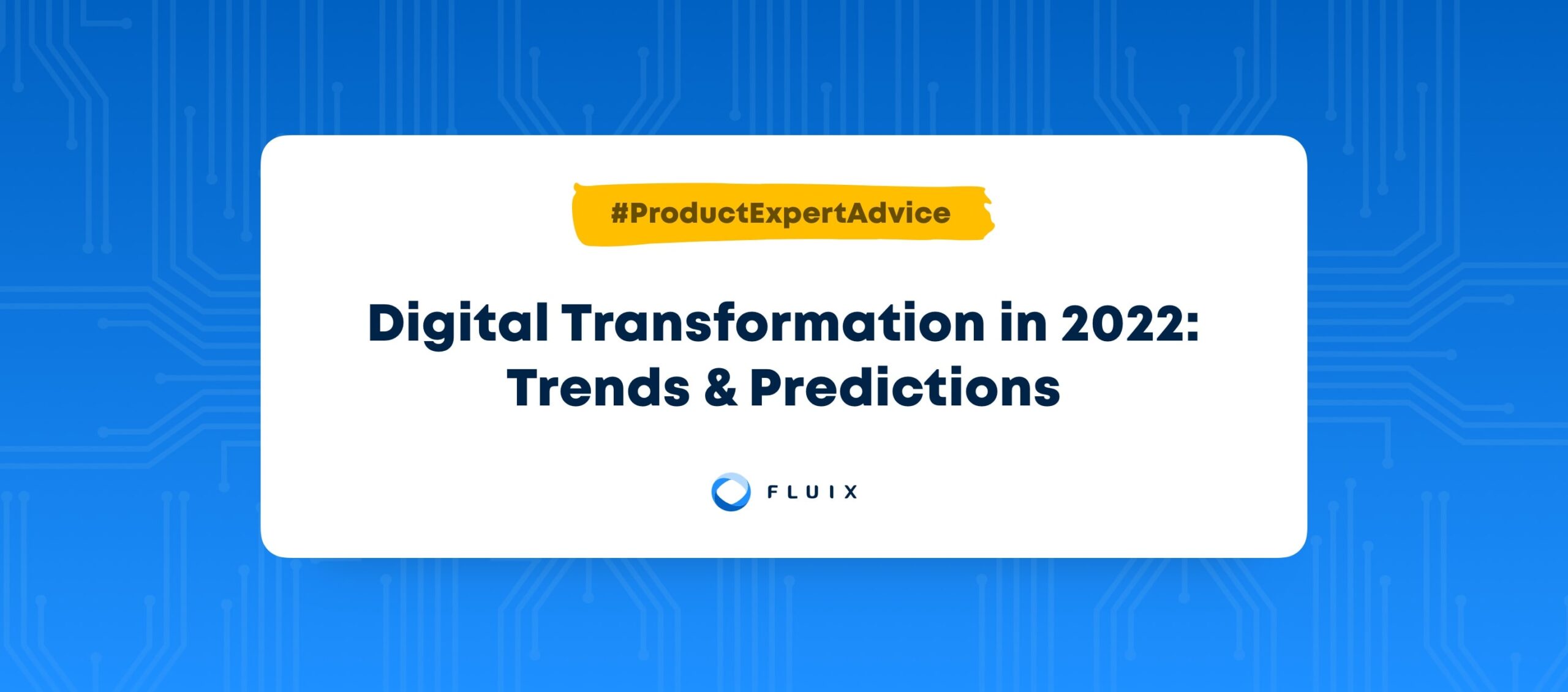Digital transformation is often associated with complicated processes but the actual concept is simple. It refers to systematic usage of digital tools, which helps companies transform business processes and deliver more optimized solutions.
Its goal isn’t to become digital but to provide value for the organization. And although the demand for digital transformation was in many ways accelerated by COVID-19, it would have made its way into business processes even without the lockdown-imposed measures. It will continue doing so in the upcoming years.
Digital Transformation Predictions for 2022
Hybrid Workplace
The Covid-forced restrictions have made workplaces evolve with speed, and employees – adapt to new requirements. Workers had to learn to use new tools, transform their homes into offices, and structure their working hours. Many got used to a new schedule, and refused to go back to offices after they were open.
Now when many workplaces have remote staff, office-based and field-based employees, the task is to arrange smooth collaboration and operations regardless of the location. Being able to work from different devices, desktop, tablet, mobile phone would also be a must, with the corresponding security measures arranged.
Technical Training
As a business transformation life cycle continues, organizations will impose more digital knowledge imperatives on staff. People will be expected to know how to use messengers, workflow software, team collaboration tools, webinar software, cloud storages, etc.
To make the acceleration smoother, especially for the older generation, companies may need to employ special tech coaches or even implement a separate tech department within HR.
Hyper Automation
The demand for automating repetitive tasks has been growing in recent years. But now companies are shifting the focus from task automation to process automation, digitizing multiple processes on the ecosystem level. Robotic process automation, big data analysis and machine learning are no longer requirements by enterprises only.
In their turn, IT companies are developing more infrastructure and no-code tools, with new products systematically emerging on the market. This will give even small-scale companies options to innovate and digitize without the necessity of having in-house programmers.
Cybersecurity
Security‑by‑default will be introduced as a core value for any organization relying on a digital business transformation strategy. The rise of automations, remote work and cloud usage requires extra security levels for managing the corporate environments with confidence.
Businesses are starting to adopt new network security strategies that will provide more flexible and scalable control over data management both inside and outside the office walls and devices.
Sustainability
With 59% of shoppers making environmentally-conscious lifestyle a priority, brands have been prioritizing sustainable solutions as well. Faster cloud transformation is one of such solutions. By choice or under governmental acts, organizations will have to migrate from their own on-premises data centers to the public cloud, at least partially.
If successfully implemented at the collective level, it should play a big role in cutting emissions and reducing a carbon footprint.
Digital Transformation Success Story
RWE Renewables managed to digitize their field operations across a number of wind farms in different countries


Why Digitization Is Important
Digital business transformation management will continue to be the focus for many mainly because it allows for better operations and, as a result, a bigger profit. In 2020/21, businesses faced numerous challenges, and most of the survivors are those who managed to adapt to a new, often digital environment.
- Saves time. Managing paper-based documents requires much time. You need to scan, upload, name, email or send by mail tons of documents, or commute to multiple locations to get a single document signed. Software allows to avoid it and distribute digital forms from a unified storage within clicks and minutes.
- Saves money. You don’t spend a budget on paper, printing, packaging, commute, delivery and admin work. Instead, you make a one-time investment in a professional workflow automation software that pays off in the nearest future.
- Reduces human error. Physical records can be easily damaged, lost or even stolen. Replacing them takes time, causes delays, and leads to project overruns. Digital documents are hard to destroy and can be fixed in several clicks from wherever you are.
- Protects data. Protecting sensitive and confidential data is one of the demands by any organization. It hasn’t been counted yet, but there is no doubt the average cost of stolen or leaked info will always be times higher than the average cost of digital transformation across the organization.
- Synchronizes operations. When using docs from different sources, part physical, part digital, teams may face miscommunication and project delays.
- Contributes to a professional brand image. Brands that use high tech instead of manually-managed assets are more appealing business partners, service providers and workplaces. The readiness to invest in technology serves as a proof of the company’s credibility and credence.
- Helps retain staff. Unprecedentedly, organizations are currently facing a labor shortage, with the voluntary attrition reaching 67%. This is the highest number for the past years. The reasons people are leaving differ, and adopting technologies can help keep more employees in house. Workplaces equipped with modern technology rather than last-decade assets are more attractive for staff and new talents.
In 2021, companies mainly dealt with what the pandemic left behind. Attempts to get back to normal generated a variety of trends that have eventually evolved into self-sufficient strategies.
How will digitization affect business? How will companies keep up with these trends? We’ll have the answers in 2022. What’s clear now is that organizations should start investing in digital tools and staff education so that people can use these tools in the most effective way.





